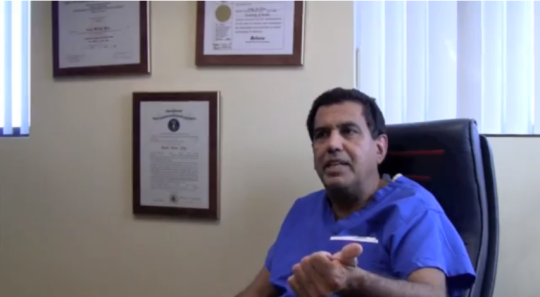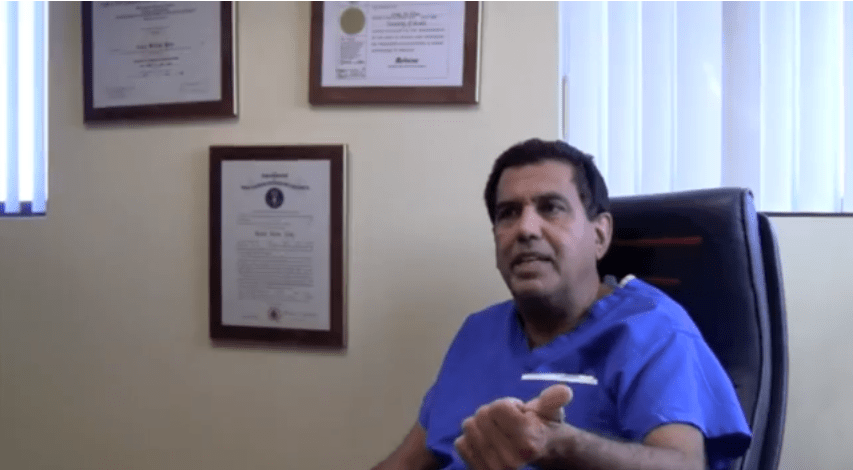Betting on Reno
Sara Schopper was doubled over with pain from gallstones when she arrived last May at St. Mary’s Regional Medical Center in Reno, Nev. To make things even worse, she had no health insurance.
Once doctors had removed her gallbladder, Schopper faced thousands of dollars in hospital bills as an uninsured worker. Before she left the hospital, however, she heard about a local reduced-rate insurance program that would keep the bills for this procedure under $2,000, and that she could even join retroactively.
When Schopper signed up for the plan, she did not expect to have to use it very soon. But just three months later, she found out she was pregnant. She then added an additional maternity care package that covers doctor visits, an ultrasound, an epidural and a hospital stay. The total cost was $2,000, which she is paying in installments.
“My baby will be paid for when the due date comes, and that’s a relief,” said Schopper, 33, a single mother who runs a plant nursery and landscape company. “This makes the process easier because paying bills makes pregnancy not as fun.”
The pregnancy package is one feature of Nevada’s Access to Healthcare program, a network of doctors, specialists and hospitals that offer reduced rates to members who don’t already have health care insurance.
On the other side of the country, in Georgia, doctors are mimicking the program to bring better care to patients who do without insurance. Athens health leaders, who have investigated the 7-year-old Reno network, hope to start their own reduced-rate program by the end of the year.
The typical participant in the Nevada program is a working adult who earns too much for Medicaid eligibility. Members pay about $40 monthly for membership in the program, and they then pay set fees for doctor visits, medical procedures and hospital stays. For Schopper, that means $300 for epidural pain relief during her delivery and $400 for each day in the hospital.
“For a single mom who works hard, insurance is so expensive, and this is a nice option. I don’t know what I would have done otherwise with this pregnancy,” she said. “Hardworking people can’t get the best health care coverage with the economy the way it is, especially when they don’t want to turn to welfare or Medicaid.”
[youtube]http://www.youtube.com/watch?v=gcyShml8r7w[/youtube]
The Reno prototype
Doctors and community members in Reno created the Access to Healthcare Network (AHN) in 2007 to help an increasing number of locals who were not covered through employer-sponsored insurance.
“The network has been more successful than any of us thought it would be,” said Christine Caulfield, director of eligibility and enrollment. “We’ve been able to give structure to a structureless system.”
The goal is to accomplish several things at once: to focus on preventive care; to give individual Reno residents a primary care home [a central practice that handles a patient’s various health needs], to reduce paperwork for insurance claims; and to help doctors collect cash at the time of appointments, Caulfield said.
“It helps to get the ball rolling because people look at cost as a barrier to care.” said Jeff Snyder, administrator of Reno’s OB-GYN Associates. “Though we’ve always extended discounts to those with a financial need, patients didn’t approach us because they perceived a barrier.”
The private practice he manages accepts 10 to 15 Access to Healthcare members at a time who are pregnant or need gynecological care.
“The reimbursement from AHN is less than Medicaid reimbursement, so we must limit the available slots,” Snyder said. “But I think the community as a whole recognizes this problem, and other practices participate as well.”
To be eligible, a Nevada resident must earn between 100 percent and 250 percent of the federal poverty level, which is $11,000 to $27,900 for a single person or $15,000 to $37,800 for two people.
When members sign up for the program, a care coordinator helps them find a primary care provider. If the member needs additional services, the care coordinator arranges appointments with specialists as well.
When it comes to women’s health, OB-GYNs in the network offer reduced fees for annual exams, surgeries, and tests for gonorrhea and chlamydia. State grant programs also provide for breast and cervical screenings.

“The system is ideal because of the focus on providing care for patients who otherwise wouldn’t get it,” said Ricardo Garcia, an OB-GYN at Women’s Health Specialists of Nevada. “And even though the rates aren’t the greatest, this is cash. The federal reimbursements take forever.”
The maternity care plan includes prenatal care, delivery and one postpartum visit for less than $2,500.
Depending on the mother’s income and which hospital she chooses, this includes $1,000 to $1,230 for a regular delivery or $1,650 to $2,400 for a Caesarean section.
As the program enters its seventh year, it is signing up more and more patients from the Las Vegas area and from Nevada’s remote rural counties, where there are few doctors or hospitals. The network received 40 calls inquiring about maternity care in February alone, Caulfield said.
“There aren’t many options in Nevada other than Medicaid or private insurance,” Caulfield said. “Even then, some insurances don’t cover anything related to maternity care, and that becomes very expensive out-of-pocket.”
The Athens program
In Georgia, doctors and community members are creating a similar health care plan for the roughly 5,000 people in Athens who went without insurance in 2010. This is the first time the Nevada approach to a health safety net has been adopted outside the state, though the two programs are not affiliated.
“This is for our small businesses and nonprofits that don’t have a large enough risk pool for insurance, our part-time artistic workers, our students whose parents don’t have insurance, and others,” said Allie Chambers, director of the Athens Health Network, the organization that hopes to start the program.
The Athens Health Assurance Program is not an insurance plan. It’s a way of buying discounted care through a club membership (like buying discounted groceries through a warehouse club). As the Affordable Care Act moves forward, many Athens-area residents will still be in need of this nonprofit medical discount network, especially if Georgia does not expand its Medicaid program.
When Chambers was earning her master’s degree in public health at UGA, she scoured the nation for a “capstone project,’’ a way to make health care affordable for low-wage workers. That’s when she discovered and studied the Reno plan, and AHN’s board members were so enthusiastic about it that they agreed to bring it to Georgia.
Chambers is now the point person for obtaining grant support, gathering donations, and recruiting doctors and hospitals for the provider pool, which they plan to have in place by the end of the year.
Chambers and others are conducting focus groups and a community survey to estimate how many Athens residents will sign up, how much they would be willing to pay for services and which services are needed.
The group will start by enlisting primary care doctors and then go after specialists, including OB-GYNs.
A maternity care package probably won’t be offered at the start.
Three Athens clinics — Mercy Health Center, Athens Nurses Clinic, and Athens Neighborhood Health Center — offer reduced-price Pap smears, pelvic exams, and testing for sexually transmitted diseases if patients fall under 150 percent of the federal poverty guidelines. But these clinics are not equipped to care for pregnant women or deliver babies.
Right now, the only option for uninsured low-income women who need obstetric care is the midwifery clinic at Athens Regional Medical Center, which has been delivering babies for more than two decades.
The hospital primarily serves Athens and the five counties in its immediate area, but the midwifery clinic pulls in patients from the entire northeastern region of the state.
“A maternity package is probably not going to happen when we pilot the program, but I think partnering with Athens Regional and being able to use their midwifery clinic will be a huge help,” said Tracy Thompson, executive director of Mercy Health Center and chairwoman of the Athens Health Network executive committee. “Obstetric care is very lacking in this area, especially for the working poor, who must pay everything up front.”
Carolyn Crist is pursuing her master’s degree in Health and Medical Journalism from the University of Georgia. She graduated from UGA in 2010 with degrees in newspapers and English and worked at The Times in Gainesville as an education and political reporter.

